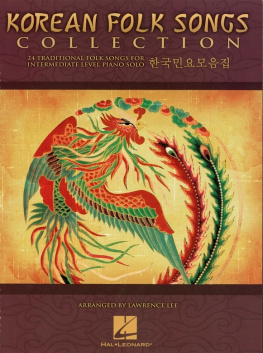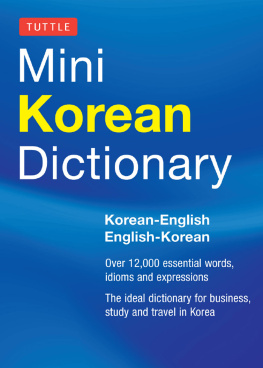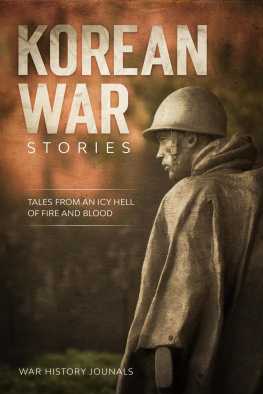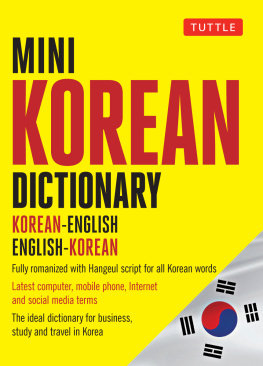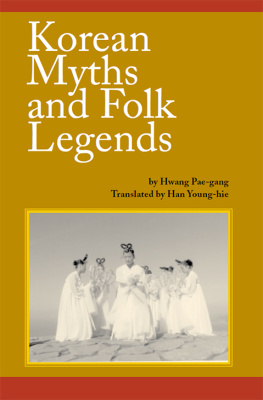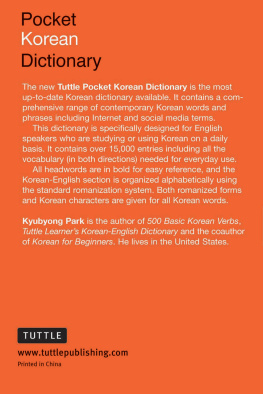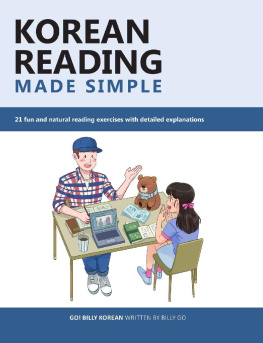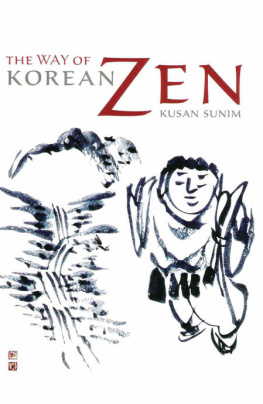Allen - Korean Tales: Being a Collection of Stories Translated from the Korean Folk Lore
Here you can read online Allen - Korean Tales: Being a Collection of Stories Translated from the Korean Folk Lore full text of the book (entire story) in english for free. Download pdf and epub, get meaning, cover and reviews about this ebook. year: 2018, publisher: Munseys, genre: Detective and thriller. Description of the work, (preface) as well as reviews are available. Best literature library LitArk.com created for fans of good reading and offers a wide selection of genres:
Romance novel
Science fiction
Adventure
Detective
Science
History
Home and family
Prose
Art
Politics
Computer
Non-fiction
Religion
Business
Children
Humor
Choose a favorite category and find really read worthwhile books. Enjoy immersion in the world of imagination, feel the emotions of the characters or learn something new for yourself, make an fascinating discovery.
- Book:Korean Tales: Being a Collection of Stories Translated from the Korean Folk Lore
- Author:
- Publisher:Munseys
- Genre:
- Year:2018
- Rating:3 / 5
- Favourites:Add to favourites
- Your mark:
- 60
- 1
- 2
- 3
- 4
- 5
Korean Tales: Being a Collection of Stories Translated from the Korean Folk Lore: summary, description and annotation
We offer to read an annotation, description, summary or preface (depends on what the author of the book "Korean Tales: Being a Collection of Stories Translated from the Korean Folk Lore" wrote himself). If you haven't found the necessary information about the book — write in the comments, we will try to find it.
Allen: author's other books
Who wrote Korean Tales: Being a Collection of Stories Translated from the Korean Folk Lore? Find out the surname, the name of the author of the book and a list of all author's works by series.
Korean Tales: Being a Collection of Stories Translated from the Korean Folk Lore — read online for free the complete book (whole text) full work
Below is the text of the book, divided by pages. System saving the place of the last page read, allows you to conveniently read the book "Korean Tales: Being a Collection of Stories Translated from the Korean Folk Lore" online for free, without having to search again every time where you left off. Put a bookmark, and you can go to the page where you finished reading at any time.
Font size:
Interval:
Bookmark:

 NOTE.
NOTE.
The national emblem of Korea, pictured on the cover, represents the male and female elements of nature; the dark blue representing Heaven (the male), the yellow representing Earth (the female). As seen across the Eastern Sea, the heavens seem to lap over and embrace the earth, while the earth, to landwards, rises in the lofty mountains and folds the heavens in its embrace, making a harmonious whole.
The characters represent the four points of the compass, and belong to the original eight characters given by the first King, and from which all language sprung. The whole set is as follows:PREFACE.
Repeatedly, since returning to the United States, people have asked me, Why don't you write a book on Korea? I have invariably replied that it was not necessary, and referred the inquirers to the large work of Dr. Griffis, entitled Corea, the Hermit Kingdom, which covers the subject in a charming manner.
My object in writing this book was to correct the erroneous impressions I have found somewhat prevalentthat the Koreans were a semi-savage people. And believing that the object could be accomplished best in displaying the thought, life, and habits of the people as portrayed in their native lore, I have made these translations, which, while they are so chosen as to cover various phases of life, are not to be considered as especially selected.
I also wished to have some means of answering the constant inquiries from all parts of the country concerning Korean life and characteristics.
People in Washington have asked me if Korea was an island in the Mediterranean; others have asked if Korea could be reached by rail from Europe; others have supposed that Korea was somewhere in the South Seas, with a climate that enabled the natives to dispense with clothing. I have therefore included two chapters, introductory and descriptive in character, concerning the subjects of the majority of such questions.
Globe trotters, in passing from Japan to North China, usually go by way of the Korean ports, now that a line of excellent Japanese steamships covers that route. These travellers see the somewhat barren coasts of Korealeft so, that outsiders might not be tempted to come to the then hermit country; perhaps they land at Chemulpoo (the port of the capital, thirty miles distant), and stroll through the rows of miserable, temporary huts, occupied by the stevedores, the pack-coolies, chair-bearers, and other transient scum, and then write a long article descriptive of Korea. As well might they describe America as seen among the slab shanties of one of the newest western railroad towns, for when the treaties were formed in 1882 not a house stood where Chemulpoo now stands, with its several thousand regular inhabitants and as many more transients.
Washington, D. C, July 1, 1889.
INTRODUCTORY.
Korea, Corea, or Chosen (morning calm) occupies the peninsula hanging down from Manchooria and Russian Siberia between China and Japan, and extending from the 33d to the 43d parallels of north latitude.
The area, including the outlying islands, is about one hundred thousand square miles. The population, according to the most reliable estimate, is a little more than sixteen millions. Yet, as the people live in cities, towns, and hamlets, the country does not seem to be thickly settled.
The climate varies much at the extremities of the peninsula, owing to the fact that the southern portion is somewhat affected by the warm southern currents that give Japan its tropical climate, but which are warded off from Korea proper by the Japanese islands. The climate of the central and northern provinces is much the same as that of the northern central United States, with fewer changes. The large river at the capital is not uncommonly frozen over for weeks at a time during the winter, so that heavy carts pass over on the ice. Ice is always preserved for general use in summer.
The country is decidedly mountainous, and well watered. Heavy timber abounds in the northeast. The valleys are very fertile and are well tilled, as the people are mainly devoted to agriculture.
The mineral resources have only been developed in a crude way, yet sufficiently to demonstrate the great wealth of the ore deposits. Especially is this true in reference to the gold mines.
The most pessimistic visitors to Korea are unstinted in their praise of the beautiful scenery, which is fully appreciated by the natives as well. From ancient times they have had guidebooks setting forth the natural charms of particular localities; and excursions to distant places for the sole purpose of enjoying the views are a common occurrence.
The King rules as absolute monarch. He is assisted by the Prime-Minister and his two associatesthe ministers of the Left and Eight. Next to these come the heads of the six departments of Etiquette and Ceremonies, Finance, War, Public Works, Justice, and Registration, with the heads of the two new departments that have been added as the result of the opening up of foreign intercoursethe Foreign (or outside) Office, and the Home (or interior) Office. This body of officials forms the grand council of the King.
Each of the eight provinces is ruled by a governor, who has under him prefects, local magistrates, supervisors of hamlets, and petty officials, so that the whole scale makes a very complete system and affords no lack of officials.
There are several special officers appointed by the King, one of whom is the government inspector, whose duty it is to go about in disguise, learn the condition of the people, and ascertain if any magistrate abuses his office and oppresses the people unjustly. Any such he may bring to speedy justice.
The present Dynasty has existed 498 years. Being founded by a revolting general named Ye, it is known as the Ye Dynasty. The King's name, however, is never used. He is almost sacred to his people. Those officials of sufficiently high rank to go in before him bow to the ground in his presence, and only speak when spoken to; then they use a highly honorific language only understood at court.
The revenues are paid in kind, hence the annual income of an official may consist of a certain quantity of rice, and other products, in addition to his money compensation. The King, also, has the whole revenue resulting from the sale of the ginseng, for which the country is noted. This forms his private purse.
The currency is the common copper cash, worth some twelve hundred to the Mexican dollar; though now that the new mint is in operation, copper, silver, and gold coins are being made. The old perforated cash will, however, be hard to supplant, owing to its convenience in small transactions.
Banks proper do not exist; though the government does a kind of banking business in granting orders on various provincial offices, so that a travelling official need not be burdened with much ready money. A number of large brokers at the capital assist in the government financial transactions.
All unoccupied land belongs to the King, but any man may take up a homestead, and, after tilling it and paying taxes on it for a period of three years, it becomes his own, and must be purchased should the government need it.
Deeds are given in the form of receipts and quit-claims by the seller. These may be registered with the local magistrate. Wills, as understood in western countries, are not executed; though a father wishing to provide especially for the children of his concubines may make a will, or statement, the proper execution of which devolves upon the eldest son.
Font size:
Interval:
Bookmark:
Similar books «Korean Tales: Being a Collection of Stories Translated from the Korean Folk Lore»
Look at similar books to Korean Tales: Being a Collection of Stories Translated from the Korean Folk Lore. We have selected literature similar in name and meaning in the hope of providing readers with more options to find new, interesting, not yet read works.
Discussion, reviews of the book Korean Tales: Being a Collection of Stories Translated from the Korean Folk Lore and just readers' own opinions. Leave your comments, write what you think about the work, its meaning or the main characters. Specify what exactly you liked and what you didn't like, and why you think so.


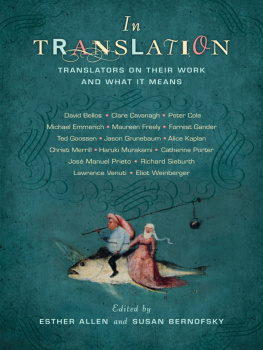
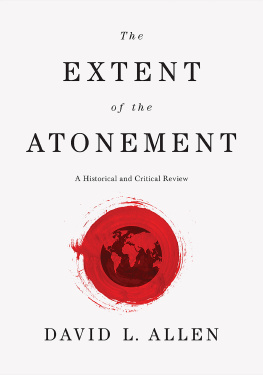
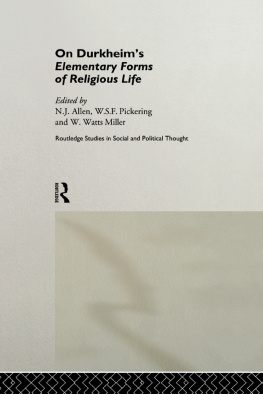




![Robert Choi - Korean Folk Songs: Stars in the Sky and Dreams in Our Hearts [14 Sing Along Songs with the Downloadable Audio included]](/uploads/posts/book/423508/thumbs/robert-choi-korean-folk-songs-stars-in-the-sky.jpg)
